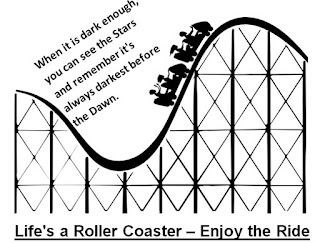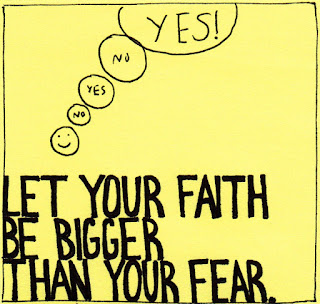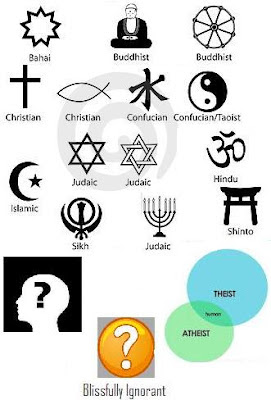Life and Roller Coaster
We should try to live a balanced life – should not over enjoy triumphs and bravely overcome/ handle low tides.
Our reaction when the “Going is not Good”
“We all have problems. The way we solve them is what makes us different.”
We need to learn to cope up with bad times with perseverance and patience. Trials come for a reason; Bad times are not an end to themselves. They are designed to produce something in our life. The testing of our faith produces endurance.
Control and Manage our Anxiety
find purpose of life
· Both come in many shapes, designs, and colors.
· Both start with a big drop; both have ups and downs. It doesn’t really matter if we sit in the front or the back — everyone has a similar experience.
· Both require participation – watching just isn’t the same; both are more fun when shared with others.
· Both can be fun for a minute and terrifying the next; sometimes it's thrilling, other times it's scary; both can make you scream and throw up.
· Both require that you follow the rules for your safety.
· Both go very fast and don’t last long enough.
All times are not same, be it how we spend 24 hours in a day, 7 days in a week, 30 days of a month, 12 months in a year, 10 years in a decade, etc…We should try to live a balanced life – should not over enjoy triumphs and bravely overcome/ handle low tides.
Our reaction when the “Going is not Good”
How often have we said – “Can't Handle this Anymore!!!”
Times when we feel like there is no one can help us; Times when we are convinced that we are without hope; Times when we are in depression; Times when we feel irritated; Times when our family and friends begin to hate us because we are just constantly giving them attitude; Times when nothing seems to be working; Times when everything seems to be falling leaking through the cracks.
· Self-victimization - We ask ourselves “Why is this happening to me? Why am I so unlucky? Why doesn’t this happen to anyone else? It’s not fair!”
· Reacting in anger - We lash back at the situation, or even people around us, for what’s happening.
· Self-blame - We make self-depreciating comments like “Why am I so stupid to have done that?” “Only someone like me can make such a dumb mistake.”
· Slipping into depression - We may slip in depression if we’re not careful at managing our emotions.
· Dejection or giving up - We lose hope, or worse still, we give-up. We decide it’s not worth it, that life is out to get us, and we should just stop trying altogether.
What do you do when bad times come? How do you handle it? What is your attitude when your well-laid plans crumble into disaster?“We all have problems. The way we solve them is what makes us different.”
We need to learn to cope up with bad times with perseverance and patience. Trials come for a reason; Bad times are not an end to themselves. They are designed to produce something in our life. The testing of our faith produces endurance.
Control and Manage our Anxiety
Anxiety is the type of condition that can at times feel so overwhelming that we are convinced that we'll never be able to live a happy life - or live the life that we have always wanted.
But the truth is that anxiety itself is what causes this feeling.
Anxiety has the ability to make your life feel like we are without hope.
We can be cured, and we can find relief, but the only way to find that relief is to commit to the idea that anxiety help exists. That's why, when we feel like it's too much, we have two options:
· Sit and do nothing, and live with anxiety forever.
· Commit to change and start on our way to recovery.
Learning to Cope in the Short Run (Quick-Fix / First-Aid)
· Share - Turn on the TV and lights. Call your close friend / Mentor / Role Model and talk about anything and everything that is in our mind.
· Physical Exercise - Go out for a very fast run, and when we get tired, wait until we regained some of our strength and run again. Tire out our body so strongly that we can't even think about your physical worries. We can also punch a punching bag or yell as loudly as possible as long as possible. Do all of them if we need to.
· Jot down in your diary - Anxiety sometimes causes thoughts to roll out of control. They're simply thoughts that we can't stop thinking about. Write them all out. Write down everything that is in our head, and every thought that comes up. Once it's out of our head, we should find ourselves thinking less about it.
· Accepting and Creating a Plan - Finally, when it feels hopeless right now, we need to give ourselves an opportunity to stop focusing on how it feels now and get ready for how it's going to improve in the future.
Step I - Tell our self that it's okay for us to have anxiety. We need to accept it instead of trying to fight it, because acceptance is the most important tool for believing us that we can overcome it.
Step II – Create a long term plan for the future, with the things we are going to do to find relief/solution.
Are we going to see a therapist? Are we going to ask our doctor about medications? Are we planning on exercising? Are we going to look for a new job, or find any new friends? What if we still suffer from anxiety – what changes will we make?
Decide on what we are going to do and plan it out for the long term – not just days, not just weeks, but months and even years. Having that plan ensures that we are focused on our future, so that what we deal with in the present becomes less important.
Learning to Cope in the Long Run (Permanent Cure)
We simply need to avoid certain traps:
· Believing we can cure it on our own.
· Believing that our anxiety is worse / different.
· Believing that if a treatment doesn't work in a week or so, it's not going to work.
Release your Stress/Frustrations - Don’t bottle them out because we might just collapse. The problem will still remain whether we go berserk at it or whether we think about it calmly. The former will create more problems as our agitation prevents us from making good decisions. Being frustrated isn’t going to solve anything. Talk to a friend about it. A listening ear does wonders. Go exercise and release the tension. Write in your diary.
Don’t self-victimise - No matter what we may think, we are not alone in this. Somewhere around the world, someone else is thinking the exact same thing as we. Someone out there is feeling down and out too, wondering why he/she is experiencing this. Knowing it’s not just you helps you to get out of a self-victimising mindset.
Know we always have a choice - Realize no matter what happens, we always have a choice in how we react. While we may not be able to control what happens to us, we can most certainly control our behaviors. We can face the worst things in the world, but if we make the choice not to let our self be affected by them, we won’t be.
Think Objectively - An incident is an incident; we’re responsible for the feelings attached. Remove the feelings and look at the situation objectively. This will help us cope a lot better.
Create an Action Plan – Focus on what we can do; Action creates empowerment. Actions create possibilities. Action creates results. By taking action, we are no longer a passive recipient; we are a conscious creator.
Ask for help if you need to - It’s okay to ask for help if it makes the situation easier and if it helps. Remember, we are not alone in this.
See it as an obstacle to be overcome - Life is a journey of learning and growth, and everything happens for a reason. Obstacles are the things stopping us from getting our goals, and if we keep overcoming these obstacles, we’ll eventually get what we want.
Identify the lessons learned - There are always things to be learned from every situation to cope up with similar situations in future.
No matter what bad stuff life throws our way, nothing can get us down, as long as we cope with it constructively.find purpose of life








